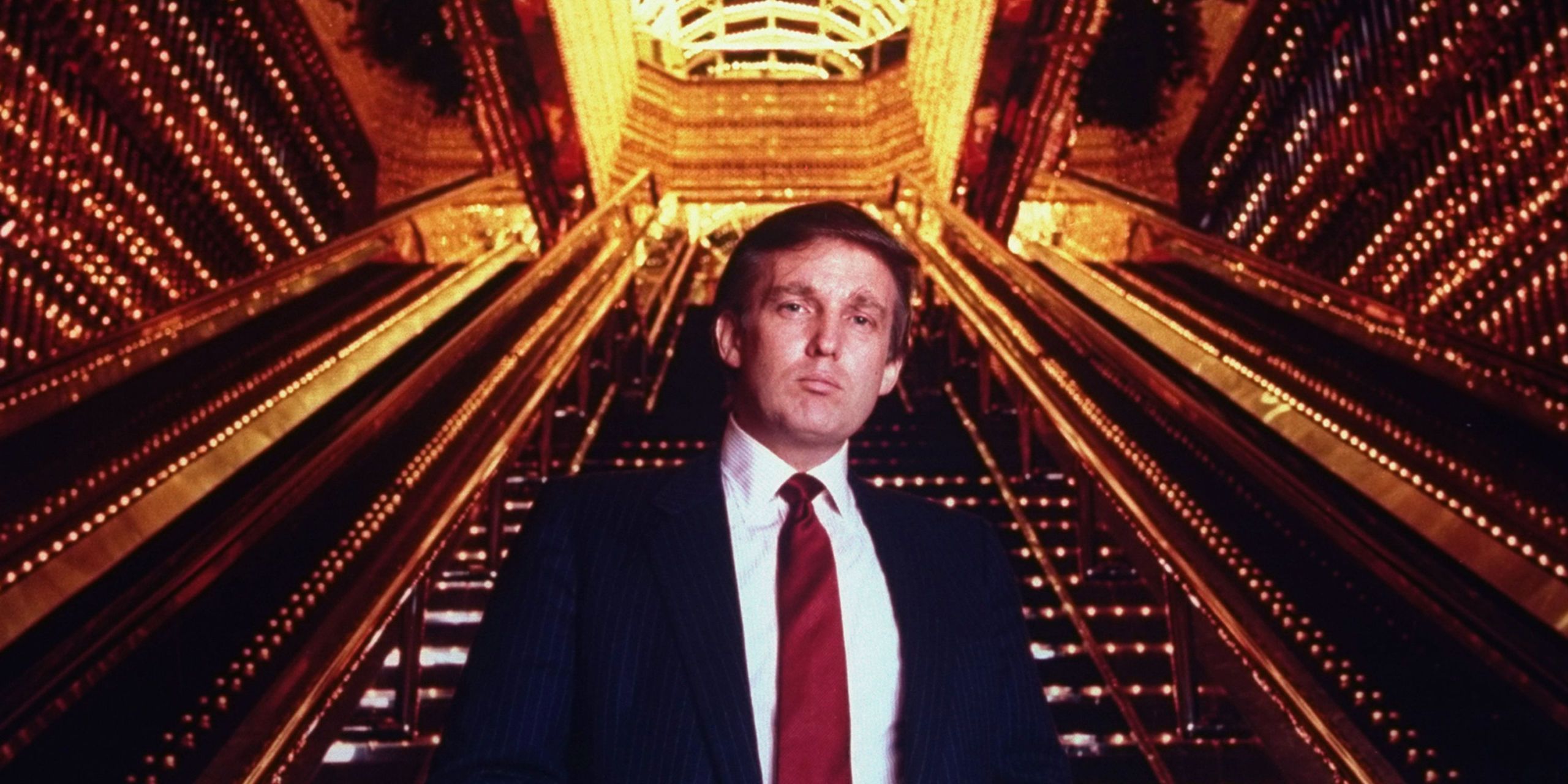| |  |  | | | | How Donald Trump Destroyed a Football League | | | Before barreling through what he dismisses as his loser, low-energy, blood-coming-out-of-their-whatever opposition and shaking up politics as usual, Donald Trump was trying to shake the high holy shit out of professional football. He was just 37—a budding rogue rich guy with flyaway sandy (not yet orange) hair and a trophy first wife named Ivana. He'd just built a 68-story glass tower in the middle of Manhattan and, to make sure people noticed, put his name on it. In bronze. He'd soon open his first Atlantic City casino, slapping his name on that, too. Even back then, Trump wanted what he still wants most: more. So in 1983 he bought a football team, joining a confederacy of other rich rogues who had just completed their first season of the United States Football League. The business plan: compete with the NFL—sport's one true, grim superpower, whom USFL owners mocked as the No Fun League—but not directly against it. The twelve-team USFL played its games in the spring, encouraged excessive end zone celebrations (the NFL penalized them), and allowed both replay challenges and two-point conversions after touchdowns (the NFL still didn't permit either). Games were televised on ABC and an upstart cable channel called ESPN. Trump purchased the New Jersey Generals from J. Walter Duncan, a laidback Oklahoma oil tycoon who got homesick travelling each weekend to watch his team play ("You weren't going to outsmart him," one observer said of Duncan. "But you might be able to out-talk him"). With Heisman Trophy winner Herschel Walker already in the backfield, the Generals had been the league's flagship underachiever. They won just six games against opponents that stretched from Tampa Bay (whose halftime promotions included seven-car giveaways and the burning of mortgages) to Birmingham to Los Angeles, where the league eventually took over a team almost nobody came to watch. By the next season, when Trump bought in, the league swelled to eighteen cities—a money grab by owners to collect millions in franchise fees and soften their growing losses. The Generals' fortunes rose instantly, but the league's did not. The USFL collapsed after just three seasons. Yet its Trumpian storyline hews eerily close to today's. The Donald made a media-inhaling, savior-is-born entrance; surged beyond expectations; then went all in on his attempt to upend the entrenched NFL by pushing his fellow owners to move games to the fall in hopes of inciting a merger. The bet brought the league, already in failing health, crashing down. READ MORE | | | | |  |
| | | | | When I Found Out My Father Was the BTK Killer, I Suddenly Saw the Clues Everywhere | | | | Kerri Rawson couldn't breathe. It was early afternoon on February 25, 2005, and an FBI agent stood in her kitchen, his back to the microwave, a chocolate Bundt cake she baked the night before on the counter next to him. "Is your father Dennis Rader?" the agent questioned. "He's been arrested. Your dad is wanted for murders in Kansas." It didn't seem possible. Her dad—her Boy Scout-leading, church-ushering, stamp-collecting dad—one of the most notorious, most feared, and most disturbed men in American history? Read On | | | | | | | | | | | | | | | The Ridiculously Comfortable Boots You Can Wear In Any Weather | | | | These boots are, quite possibly, the only boots you need in your rotation this winter—and well into spring. They're easy to wear, damn-near impervious to the elements, and they'll work with just about everything in your wardrobe. So, what are you waiting for? Get a pair and wear 'em everywhere. Read On | | | | | | | | | | | | | | | Matthew McConaughey's Serenity Is So Insane That No Headline Can Begin to Do it Justice | | | | Serenity is fucking crazy. I would say "spoiler alert" here, but the movie pretty much comes at you pre-spoiled: We open on a shot of a child's face, and then zoom way into his left eye, wherein lies a placid blue sea, a fishing boat called Serenity, and a sun-damaged Matthew McConaughey making zero sense. Right from the beginning, you know that Things Are Not What They Seem, all that remains to be determined is How and Whether You Will Care. Read On | | | | | | | | | | | | | | | The Great American Heist | | | | A defense contractor running the Department of Defense. A self-styled tycoon who allegedly stole $120 million from his business partners. A coal lobbyist regulating coal. A senior Commerce Department official who once lobbied for whale hunters. Ivanka. Donald Trump's improbable ascension to the American presidency was a Bat Signal to some of the most accomplished grifters and scoundrels this fine country has to offer. Here's a look at the new class of operators who have infiltrated the Executive Branch. Read On | | | | | | | | | | | | | | | The Racial Politics in This Year's Best Picture Nominees Are Quietly Conservative | | | | If you're interested in narratives of Blackness in cinema, this year's Best Picture Oscar nominations were something to celebrate—at least upon first glance. Three of the movies featured leading Black characters: Black Panther, BlacKkKlansman, and—ostensibly—Green Book. Alongside Roma and Bohemian Rhapsody, this trio of movies meant that a majority of the Best Picture nods celebrated cinema about people of color, a win for "diversity." And yet, the three nominated films about Black people all feature seductively conservative racial politics. Read On | | | | | | | | | | | | |
No comments:
Post a Comment